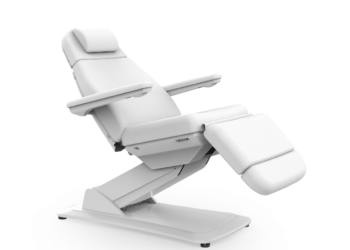Welcome, employees! Are you looking to boost your productivity and achieve more in less time? Effective time management is the key! In this blog post, we’ll explore 10 essential strategies that will help you become a time management maestro, leading to increased workplace efficiency. Let’s dive in!
Time Management Strategies
Set Clear Goals and Priorities
First things first, it’s crucial to set clear goals. Define what you want to achieve and establish measurable objectives. This will provide a clear direction for your work. Additionally, prioritize your tasks based on their importance and urgency. By focusing on high-priority items, you ensure that your time is spent on the most impactful activities. Remember, a goal without a plan is just a wish!
Create a Daily/Weekly Schedule
Having a well-structured schedule is vital for effective time management. Start by organizing your day or week in advance. Allocate specific time slots for different tasks and activities. Time blocking is a powerful technique where you assign dedicated blocks of time to specific tasks. Utilize digital tools like calendar apps to keep your schedule organized and easily accessible. By following a schedule, you’ll gain better control over your time and stay on track.
Minimize Distractions
Distractions can significantly derail your productivity. Identify common workplace distractions such as email notifications, social media, or excessive noise. Take proactive steps to minimize these interruptions. Turn off unnecessary notifications and establish designated times to check your email. Consider using website blockers or apps that help you stay focused. By reducing distractions, you create an environment conducive to deep work and heightened efficiency.
Practice Effective Task Management
Mastering task management is essential for optimizing your time. Utilize techniques like the Pomodoro Technique, which involves working in short bursts followed by breaks. Group similar tasks together, allowing you to work more efficiently and maintain focus. Break larger tasks into smaller, manageable steps to avoid feeling overwhelmed. By tackling tasks systematically, you’ll enhance your productivity and accomplish more with ease. Try taking on educational training like time management training to equip yourself with useful time management skills.
Delegate and Outsource Tasks
Don’t be afraid to delegate tasks when appropriate. Identify tasks that can be entrusted to others, whether colleagues or external resources. Delegation frees up your time to focus on higher-priority responsibilities. Ensure clear communication and provide necessary guidance when assigning tasks. Likewise, consider outsourcing certain activities that are not your core strengths. By effectively delegating and outsourcing, you leverage the expertise of others, fostering greater efficiency.
Learn to Say No
One common time management challenge is over-commitment. Practice the art of saying no. Understand your limits and be selective about the tasks and projects you take on. Politely decline requests that don’t align with your priorities or overwhelm your schedule. If necessary, renegotiate deadlines or propose alternative solutions. Remember, saying no allows you to protect your time and ensure that you can devote your energy to the most important endeavors.
Utilize Technology and Productivity Tools
Leverage the power of technology and productivity tools to streamline your work. Explore project management software, task-tracking apps, or collaboration tools that suit your needs. Automate repetitive tasks whenever possible, reducing manual effort and saving time. Take advantage of digital calendars and reminders to stay organized. By embracing technology, you’ll optimize your workflow and enhance overall efficiency.
Take Breaks and Practice Self-Care
Contrary to popular belief, taking breaks actually improves productivity. Regularly stepping away from work helps prevent burnout and promotes mental clarity. Incorporate short breaks throughout your day to relax, stretch, or engage in brief physical activities. Additionally, prioritize self-care outside of work hours. Get enough sleep, exercise regularly, and maintain a healthy work-life balance. By caring for your well-being, you’ll recharge your energy and perform at your best.
Continuously Evaluate and Adjust
Periodically assess your time management strategies to identify areas for improvement. Reflect on what’s working well and what needs adjustment. Consider tracking your time to gain insights into your habits and identify potential time wasters. Be open to experimenting with new techniques and approaches. Remember, time management is a skill that evolves over time. By regularly evaluating and adjusting, you’ll refine your approach and continuously enhance your efficiency.
Use the Pomodoro Technique
The Pomodoro Technique involves working on a task for 25 minutes, taking a 5-minute break, and repeating the cycle four times before taking a longer break. This technique can help you stay focused and increase productivity.
Conclusion
In conclusion, implementing these time management strategies can help you become more productive, achieve your goals, and avoid burnout in the workplace. By setting clear goals, creating schedules, minimizing distractions, and practicing effective task management, you’ll supercharge your productivity. Remember, consistent implementation, coupled with self-care and continuous evaluation, will lead to long-term success. Embrace these strategies, and watch your efficiency soar!







